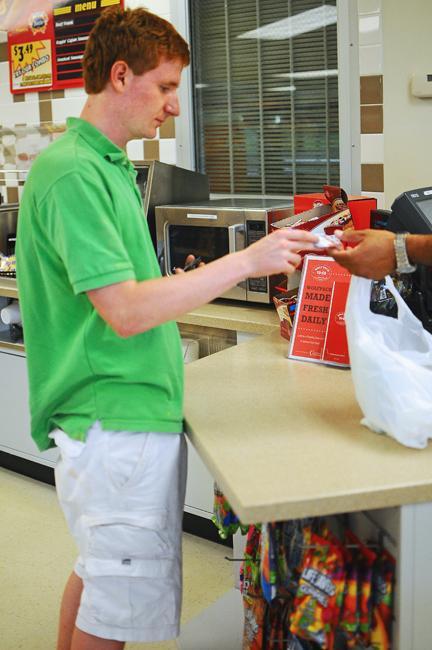University Dining is set to launch multiple changes to student dining options on campus this August.
Among those is the transformation of the Bragaw C-Store to include 24-hour service.
According to Jennifer Gilmore, director of marketing and communication for Campus Enterprises, students have been asking for an on-campus dining option open later than the Hill of Beans or previous C-Store hours, both of which closed at 1 a.m .
“From the C-Store standpoint, a 24-hour operation would accommodate so many. The focus groups indicated that students really needed something open later,” Gilmore said.
Gilmore said some students found it hard to find a food option between the 1 a.m . and 7 a.m . dead spot, where no dining options were available.
“What we found from most students is that 2 a.m . is the sweet spot,” Gilmore said. “It’s around that time that many students struggle, as studying goes on late into the night.”
These late night study sessions held past former C-Store hours force many students to venture off-campus for a food late at night. Considering this a security issue, Denise Fields, University Dining C-Store manager, pushed forth a safer alternative.
“From a safety standpoint, students are going off-campus at 2 in the morning. In addition to our students, we also have custodial/housekeeping staff coming onto campus as early as 4 in the morning with food accommodation,” Gilmore said.
One difference that will be made to the University Dining system, besides revised hours, will be a two bottle maximum policy. This means when students use their meal equivalencies, they may only purchase a maximum of two bottled beverages at a time. This policy will disallow students from using an entire meal equivalency to buy bottled drinks, which Gilmore said wastes the University’s money.
“When we see trends that we cannot sustain from a cost standpoint, we take action immediately,” Gilmore said.
In the past, these negative economic trends have included using equivalency in all C-Stores.
“Packaged products are simply more expensive than cooked meals,” Gilmore said. “We are the stewards of students’ money that goes into the University Dining program, and we want to make economically wise decisions regarding that money,” Gilmore said.
According to Kelley Brackett , public communications specialist for Campus Enterprises, this new policy is meant to encourage students to use their equivalencies to purchase a rounded meal, rather than stocking up on beverages.
“The two bottle policy will most directly impact the students on Centennial Campus, where those students are used to being able to use a meal equivalency to buy whatever they please,” Brackett said. “What we’re hoping to do is to eliminate the potential to grocery shop for drinks. A meal should include an entree, a side, and a drink.”
According to Gilmore, University Dining is a direct reflection of the student needs, and said only 3 percent of annual profit goes directly back to the University itself. This money goes towards improvements in dining such as dining hall renovations or the opening of new facilities. Money is also given back via scholarships.
“Any profit we make at the end of the year goes to the expansion and improvement of the dining services,” Gilmore said.
These are not the only changes students will see this semester. The Atrium Food Court’s hours are also being extended to 10 p.m ., and according to Gilmore, these revised hours will serve as a study to determine the 2013 Talley Student Center’s dining hours of operation.
“As we get Talley Student Center on track in the fall of 2013, all of the usage data accumulated from the Atrium Food Court and 24-hour Bragaw C-Store will be used to alter those hours as well,” Gilmore said.
This means number crunching in terms of student participation. Without the needed student response to the improved hours, the hours would revert back to their former schedule, Gilmore warns.
“As long as we have pretty strong participation, then it will continue,” Gilmore said. “If we’re keeping it open for just a few people, then the costs to operate the store will exceed the money obtained, making it not economically sound.”
Gilmore said she’s unsure how the campus will respond to these changes, but said she’s hoping for the best.
“We’re just really excited to see how the operation will flourish, and we’re hoping that students will help it really take off,” Gilmore said.








